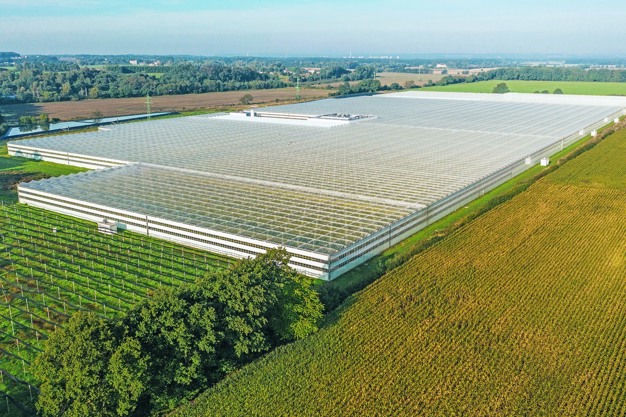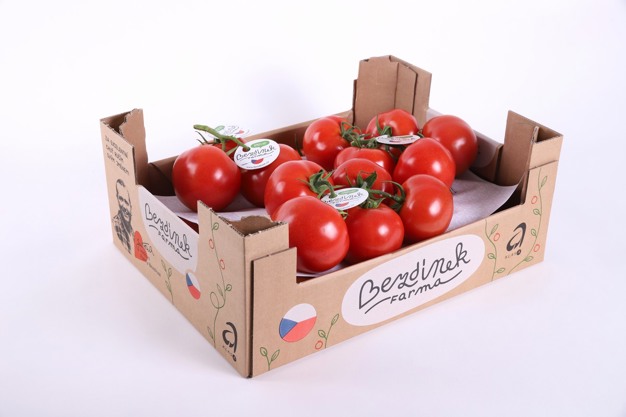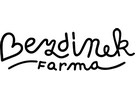The Czech Republic still has a relatively small local tomato market, as most of the demand is met by imports from Morocco and Spain. Yet, rising consumer awareness of product origin coupled with caring for the environment have been pushing some to find alternatives. Farma Bezdinek is a greenhouse tomato grower out of Czechia, and since the company's inception, they have appreciated the positive market's reception of their produce they market as 'zero residue tomatoes.'

Tomatoes and Czechia
The Czech Republic counts some 10 million citizens, meaning that the market is much smaller compared to other, more populous countries. As of now, there are around 65–70 hectares of greenhouses in the country, mainly devoted to tomato cultivation. Does this signal a customer's aversion to greenhouse-grown products? Not at all, according to Jan Fucik, greenhouse manager at Farma Bezdinek. "Customers' reception has been fantastic so far. There's quite the competition coming from Spain and Morocco when there's the usual seasonal peak. But we only sell to the local market, which has been allowing us to keep the prices very competitive, and customers' satisfaction proved there's a demand to be seized over here."
Farma Bezdinek grows tomatoes in a 15-ha greenhouse, some of it devoted to cherry tomatoes (variety Sweetelle), and the other part to tomatoes on the vine (TOV) variety Ronvine. "This is a brand-new variety which is characterized by a resistance to the rugose virus," Jan points out. Next to this, the company now also has a small 0.8 ha greenhouse where they are growing cocktail tomatoes.
With most tomatoes coming from the Netherlands, Spain, and Morocco, Farma Bezdinek can counter that with a shorter supply chain which basically makes their tomatoes last longer, and overall are just tastier. Yet, that doesn't mean that the company didn't have to endure some challenges. After all, the market in Czechia is very small, and it may be difficult for some companies to turn a substantial profit.

All fun and games until bill arrives
Farma Bezdinek's high-tech greenhouse was built 5 years ago. "It's a hybrid greenhouse, the Venlo type," Jan says. "We are working with blackout and energy screens, biological crop protection regimen only, and a bunch of automation to reduce labor pressure and allow our growers at the greenhouse to entirely focus on growing the best tomatoes."
Unfortunately, the energy crisis hitting everyone with skyrocketing electricity and gas prices has thrown a wrench in the works of many growers, and Farma Bezdinek alas was no less. "Initially, we used to grow with artificial light," Jan points out. "HPS, to be precise." HPS can indeed be quite the energy hogs, and it shouldn't come as a surprise that Jan and Farma Bezdinek couldn't keep on using them if they wanted to keep serving consumers with their fresh produce. "During the energy crisis, prices went up 3- to 4-fold, and we concluded that we couldn't continue to grow following the initial strategy we came up with. The plan was to grow year-round, but that was not feasible anymore. So, we started to grow in the summer, and we just shortened our season, generally speaking. For instance, we now plant big tomatoes in weeks 2-3 of January, small tomatoes at the end of December, and then at the end of October/the start of November, we empty the greenhouse, carry out thorough cleaning and sanitation processes, and then we start over a few months later." This way, the company doesn't have to necessarily deal with particularly low temperatures, or a general lack of sunlight that would push them to resort to some artificial lighting. "From the end of November until the end of March, we basically don't have any production."
The reason they stopped growing in winter as the energy prices went through the roof was also dictated by the fact that both retailers and end consumers would have never paid the 'additional' penny for tomatoes, especially when the penny in question was definitely more than only one. "For this season, we are pricing our tomatoes for 6 EUR per kilo," Jan points out. "But when the crisis hit, we would have had to sell our tomatoes for 13–15 EUR per kilo, which wasn't even an option, that goes without saying."
Good preparation is half the work
Now, however, things are vastly different, and the company is investing in solutions to be ready for a new energy crisis. "We have invested in 2 co-gens, and in a few months, we'll be able to produce heat. This should ensure us to get a slimmer bill at the end of the month, and it overall makes us more future-proof than we used to be."
While Czech consumers may not be super familiar with greenhouse-grown products, Farma Bezdinek has found a way to market their cultivation method that has pushed more consumers towards their Czech-grown tomatoes. "We sell our tomatoes as zero-residue tomatoes. That's what makes our product unique," says Jan. "We try to achieve the highest sugar content we can. For instance, in the summer with cherry tomatoes, we can achieve even 12 Brix. Now, since it's not summer, we are at 9,5 Brix. This is one of the reasons why customers keep on buying our tomatoes."
Since Farma Bezdinek grows locally and distributes only locally, Jan says that the freshness and shelf life of their tomatoes are no match for imported tomatoes from Spain. "Recently, we even started making packages ourselves so that we can supply supermarkets directly without necessarily going through an intermediary. This seems to be the way for us, as we can get better average price, improved product freshness and shelf life because of the shorter supply chain."
The company has been trying to implement better hi-tech to improve its sustainability, reduce labor pressure, and even increase the quality of its tomatoes. Jan recounts that they tried to use some autonomous growing system, but according to him, there's still quite the road ahead. "The preciseness of those systems still isn't where it should be, and I wish it was there. At the same time, our owner is very much aware that this is the future of horticulture, and he's really pushing strongly to stay as ahead of the curve as possible."
Despite the market in Czechia being relatively small, Jan believes there's still room for growing the greenhouse-grown space. "There are still a lot of imports compared to local production. As the trend of customers buying local production goes up, there'll be more space for us, even if we want to build a new greenhouse. Bluntly put, I believe there's quite a lot to seize in the future for local producers in Czechia."
For more information:
Farma Bezdinek
Jan Fucik
[email protected]
https://www.farmabezdinek.cz/en/
